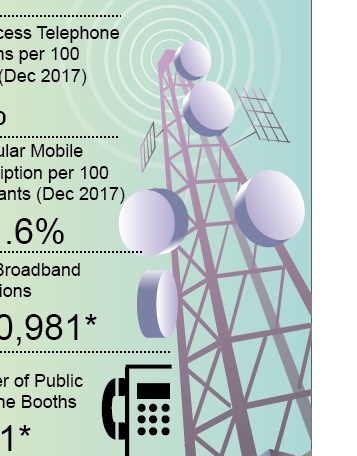Further privatisation of the SLT would expose the country’s sensitive information to private entities.
The sectoral oversight committee of Parliament has recommended against the privatisation of Sri Lanka Telecom, triggering concern by the government.
They also brought in British Telecom as an example of how to restrict areas of privatisation.
The recommendations of the Sectoral Oversight Committee say the following:
“SLT is already partially privatised, with international companies holding 44.98% of the stake and the government holding 49.5%. Further privatisation would expose the country’s critical communication infrastructure and sensitive information to private entities whose profit-oriented interests could compromise national security. Hence, privatisation of telecom is not recommended.
- Anyone or any organisation that has been blacklisted or has helped terrorists or extremists in any way should not be allowed to buy any shares or have any control over our national assets.
- The state can buy back the other large shareholder of Telecom as provided for in the agreement and divide the segments into sensitive and vulnerable, excess land and buildings, critical infrastructure, and business. While retaining the first segments affecting national security, the state can divest the others holding a major share through a private-public partnership, ensuring critical infrastructure is protected and all government regulations are adhered to. This way, the government can exit from doing business while making a profit and ensuring national security.
One of the primary examples of compromising national security by privatising telecom is the case of BT Group. In the late 1980s, British Telecommunication was privatised, and the government sold its shares to private investors. Resulting in a private company that owned and controlled the country’s critical telecom infrastructure.
- In 2016, the UK government was concerned about the potential security risks posed by BT’s ownership of the country’s telecom network. The government realised that national security had become vulnerable to cyber-attacks, espionage, etc., and that it had become easy for malicious actors to exploit the network. The British Government then imposed stricter regulations on BT to mitigate the national security threat posed by the company’s ownership. Currently, BT Group handles communication for British citizens but is owned by multiple companies that are linked to Germany, France, and Norway. This illustrates the consequences of privatising a national telecommunications company.





